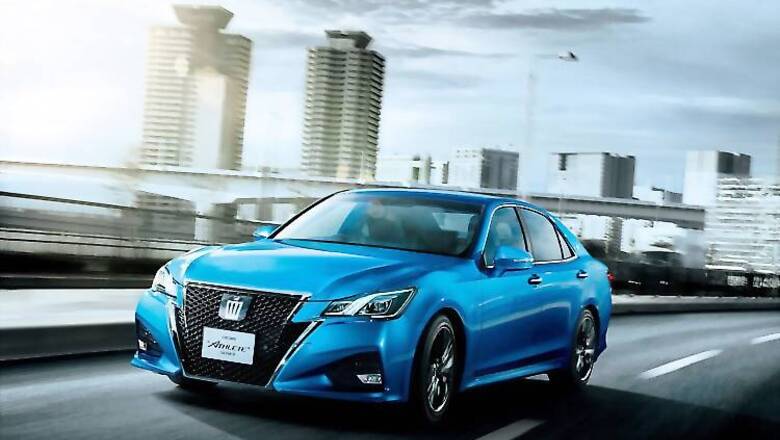
views
From the Audi R8 to the Jaguar XE, some spectacular cars made their debut in 2015. But in terms of offering a glimpse into the future and of making a statement of intent about personal mobility in an increasingly connected age, only one vehicle can really be considered the defining vehicle of 2015.
And that car is the Toyota Crown, a rather unassuming and indistinct sedan and one no longer readily available outside Japan.
But what makes the Crown -- which has been in production in some shape or form for 60 years -- stand out against cars such as the fire-breathing Ferrari 488 Spider or the meticulously crafted Rolls-Royce Dawn convertible is that the Crown is the world's first production car that can communicate with its surroundings.
Thanks to vehicle-to-infrastructure (V2I) and vehicle-to-vehicle (V2V) communication, the Crown knows when a green light is about to turn red, or vice versa, for better fuel economy. It also knows when an emergency vehicle is approaching, even before sirens can be heard.
And it can do all of this because it can tune into the ITS frequency used by cities in order to manage and monitor their roads and traffic flows. This frequency, when emitted by other Toyota Crowns, will also let cars automatically avoid each other, whether they're in each other's blind spots, advancing too quickly or parked or broken down around an obscured bend or at a junction.
"For highly automated driving to become reality, we need a certain level of connectivity," explains Gerhard Steiger, president of the Bosch Chassis Systems Control division. "Highly automated vehicles rely on environmental information -- information that goes beyond what sensors can gather. For instance, they need real-time traffic data on congestion and accidents. This can be achieved only by connecting the vehicle to a server."
It's why Bosch has developed its Connected Horizon platform for receiving this data and making use of it and why car companies around the world are currently working on systems with an aim to roll out some functionality in 2016. "By 2025, Bosch expects nearly every newly registered vehicle to be web-enabled and capable of exchanging data with other vehicles," says Steiger.
However, Toyota has beaten everyone to the punch. The Crown went on sale in October and, by the end of 2015, when the first domestic deliveries of the new Prius are made, Japan will already have two fully connected cars on its highways and byways.
And as car-to-car and car-to-infrastructure are the first big step that the industry needs to take on the journey towards fully self-driving cars, the potential importance of the Toyota Crown, despite its less than exciting looks, should not be underestimated.




















Comments
0 comment